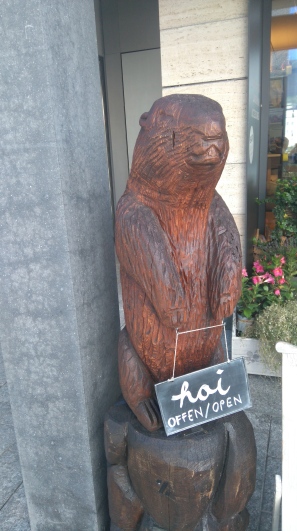Judging of the Oxford German Olympiad 2017 has now been completed and all those who took part will soon be informed of their result. It’s been a particularly exciting year for the Oxford German Network team because this year’s Olympiad has proved to be the biggest ever!
 2017 marks the 5th anniversary of what has become the biggest event in OGN’s calendar. The Oxford German Olympiad is an annual themed competition for learners of German aged between 9 years and 18 years old and living in the UK. The tasks are designed to challenge learners of all levels to get creative with their German language skills and expand their knowledge of the culture, history and literature of Germany, Austria and Switzerland. This year the theme was Deutsch(e) jenseits von Deutschland – German(s) beyond Germany.
2017 marks the 5th anniversary of what has become the biggest event in OGN’s calendar. The Oxford German Olympiad is an annual themed competition for learners of German aged between 9 years and 18 years old and living in the UK. The tasks are designed to challenge learners of all levels to get creative with their German language skills and expand their knowledge of the culture, history and literature of Germany, Austria and Switzerland. This year the theme was Deutsch(e) jenseits von Deutschland – German(s) beyond Germany.
In its first year in 2013 – when the theme was ‘Grimm Tales’ – 496 pupils aged between 11 and 18 years old took part. In 2016 (Deutscher Humor – Nichts zum Lachen?) saw 350 young German learners aged 9 to 18 years old compete to show off their German language skills and cultural knowledge. This year, nearly 550 entries were submitted by over 750 pupils aged between 9 and 18 years old from 97 schools in every part of the United Kingdom – England, Wales, Scotland and Northern Ireland were all represented. That includes nearly 50 schools that entered pupils for the very first time, making 2017 definitely the biggest year of the Olympiad in all respects!
The Olympiad tasks are judged by a hard-working team of German experts from the Oxford German Network team (past and present) and members of the Oxford University German Sub-faculty, who take a break from reading undergraduate essays every year to read… German posters, brochures, fairystories, interviews and imagined dialogues, rewritten literary classics, comic strips, and watch sketches, raps, songs and animations. The variety is almost endless!
Judging is completed in several stages and the ultimate decision over the winning entries is presided over by the Chair of the Judging Committee – in previous years this has been the professors who have been the Taylor Chair of German and the Chair of Medieval German Literature and Linguistics. This year, Professor Henrike Lähnemann once again took up the helm of the Judging Committee.
The competition is too large for the judges to be able to give individual feedback on entries and every year judging proves to be a tough task, but this year the committee were particularly impressed by the creativity of the entries. As one judge said, “what I found most striking was how evident it was when pupils were having fun”, commenting that in the tasks they had judged “it was great to see a very wide range of entries”, while another member of the Judging Committee admired the “really playful responses” to the set tasks and noted that several had showed strong evidence of considerable background research. All the judges noted that – in addition to sticking to the rubric of the competition tasks – the entries that did particularly well and most impressed them were those that showed reflectivity, linguistic accuracy and ambition, and creative thinking with language and with the format of the task, whether that was storytelling, interviewing, creating a comic strip or writing an essay.
 So the Oxford German Network Team and the Olympiad Judging Committee hope you – whether student or teacher – enjoyed taking part in the Oxford German Olympiad this year as much we all did reading and watching all your entries. Warm congratulations to all the winners, runners up, and everyone who participated!
So the Oxford German Network Team and the Olympiad Judging Committee hope you – whether student or teacher – enjoyed taking part in the Oxford German Olympiad this year as much we all did reading and watching all your entries. Warm congratulations to all the winners, runners up, and everyone who participated!
Now… keep your eyes peeled for announcements about the Oxford German Olympiad 2018!





